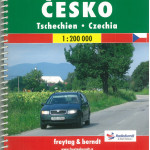The government’s decision to add the English name has triggered controversy. The Czechs would like to have a referendum and dislike the term chosen in Prague
The opinion that there is a need for a shorter name to call the Czech Republic is shared by many. Historians and linguists state that valid alternatives already exist. Many believe that choosing a shorter name, a bit easier on the ear, could also facilitate economic issues regarding the issue of the “Made in …”. However, the fact that Czechia cannot be the term everyone agrees on appeared to be evident immediately. There are those who complain about the possible costs of changing the name of the country internationally, others who criticize the fact that the term is not all encompassing, and leaves out certain territories, and some who would like a referendum to decide such a sensitive issue. Meanwhile, however, the presidency and the government seem to be on the same page, and in response to the controversy, they have gone ahead with the decision.
The choice of Czechia, an anglicized version of Česko, which is currently used in the country, was taken at a meeting at the highest level. At Hradčany, in fact, the highest offices of the state met together: the host, the Head of State Miloš Zeman, Prime Minister Bohuslav Sobotka, Foreign Minister Lubomír Zaorálek, the Minister of the Defence Martin Stropnický and the chairmen of the House and Senate, respectively, Jan Hamáček and Milan Štěch. The facts led one to presume that a great impact may have gained the support, already expressed in the past, of the Czech President, who in 2013, during a state visit to Israel, unexpectedly began using the word Czechia in his public speeches in English, “because, he said, it is shorter and also more pleasant than the Czech Republic”.
 But what use would it be to change its name from the Czech Republic to Czechia in English or Cechia in Italian? The term, would replace the existing “Czech Republic” in the official list of the United Nations member countries. “It is better to use a single word, easier to remember and quicker to indicate”, said the Foreign Minister in Prague, “it is just a case of translating this Czech word into English”, he added, referring to the term Česko, used in Czech to define the country. The news caused a stir both at home and abroad. British, French, and other national newspapers have struggled to seek the reasons for the decision and to evaluate the real repercussions it may have, and there were also those who stated that “in the country of Kafka nothing is simple”.
But what use would it be to change its name from the Czech Republic to Czechia in English or Cechia in Italian? The term, would replace the existing “Czech Republic” in the official list of the United Nations member countries. “It is better to use a single word, easier to remember and quicker to indicate”, said the Foreign Minister in Prague, “it is just a case of translating this Czech word into English”, he added, referring to the term Česko, used in Czech to define the country. The news caused a stir both at home and abroad. British, French, and other national newspapers have struggled to seek the reasons for the decision and to evaluate the real repercussions it may have, and there were also those who stated that “in the country of Kafka nothing is simple”.
In fact, there was no lack of controversy. The Minister for Regional Development, Karla Šlechtová, asked for the issue to be the subject of a referendum, because they are not decisions to be made in restricted meetings, behind closed doors. Šlechtová has even raised the possibility that the word Czechia may end up being confused with the Chechen Republic of the Russian Federation, which in English is called Chechnya. “This name has been used for some time in both German ‘Tschechien’ and in French ‘Tchéquie’, and therefore Prague will ask the UN to introduce the name in all official documents”, said Josef Kašpar, a Czech journalist, and Italian correspondent for many years, “but the problem was born in 1992, when the pacific separation from the Slovaks was decided. You could not use the term ‘Bohemia’ since it would exclude Moravia and Silesia, which are part of the country. So they opted for the name ‘Czech Republic’ with the hope that the ‘Česko’ expression that sounded cacophonous to Czech ears would eventually be accepted by all. It seems that the moment has come”.
On the other hand, also the majority of public opinion appear to oppose the decision. According to a survey from the agency Phoenix, 42% of Czechs believe that a shorter name should be found, but 81% dislike Czechia. According to the survey, the simple term Czech would be better, supported by 43%, or CZ (17%). Moreover, the vast majority believe that a referendum should be organized on the topic. The fiercest opponents of the change are the Moravané, the small Moravian Party, who highlighted how the term Czechia conceals a slight ethnic discrimination. Czechia in fact is related to the term Cechy, i.e. Bohemia, a territorial extension which excludes the regions of Moravia and Silesia.
A lively protest was also made by former Foreign Minister, Prince Karel Schwarzenberg, a descendant of the aristocratic families of the most prestigious lineage in Europe and now leader of the Conservative Top 09 Party. According to Schwarzenberg the country should be called Bohemia, obviously remembering when these lands made up the Kingdom of Bohemia. However, the Czech Republic has deep roots and includes Bohemia, Moravia and part of Silesia. In the seventeenth century these territories were understandably called Česko, a term that appears in the ancient records in Latin of that period. The name was coined by Pavel Skála of Zhoře, a Bohemian historian (1583 – 1640), and was found in the nineteenth and twentieth centuries in its English version, Czechia. Also the historian and diplomat Jiří Šitler verified that the expression Czechia was used for the first time in the Atlas Marianus published in 1704. According to Wikipedia the first use of this definition in a written document dates back to 1777.
“I agree with the Czech government’s decision to add the name Czechia to the official one of the Czech Republic”, stated Professor Anna Perissutti, a professor of Bohemian Studies at the University of Udine. “I do not think that the controversy and the criticism leveled at it by the Moravians is justified, because the name Czechia, English translation of the Czech word Česko, was codified in 1993 by the Czech Cadastre of Real estate (Názvoslovná komise Českého úřadu zeměměřického to katastrálního), a commission in which historians, linguists, and geographers collaborate. This name is also found in some Josef Fronek dictionaries. In addition, the Czechia name indicates the three regions, Bohemia, Moravia and Silesia”.
In recent weeks, then, the controversy over the name has also been followed by the controversy over the direct and indirect costs of this decision. According to the Minister Šlechtová, to promote the word Czechia around a billion Czech crowns (37 million euro) will be required, which is the same amount that her department spent on the promotion of the logo of “Czech Republic – Land of Stories”. However, the Foreign Ministry has immediately put the dots on “i”: using the term Czechia is not a renaming of the Czech Republic as a state, but it is rather a complementary term, meaning you can continue to use the formal name Czech Republic in all contexts. According to the government, the action does not involve “additional financial costs”, or modifying the logo. As a result, the Ministry noted that the decision does not even affect the promotional tourist campaign of “Czech Republic – Land of stories”.
Yet, also the national tourism agency CzechTourism seem convinced that Czechia will not affect the direct tourism in the country in any way. According to what was declared by the director Monika Palatková, the agency will continue its campaigns abroad to promote the country’s primary reliance on Prague. This is the “national brand” that attracts mainly foreign tourists. “In the world everyone knows Prague and this is our strength”, the director said.
And if there are many detractors there are also some supporters, according to Le Figaro. On the site “Go Czechia”, created by the association “Civic Initiative for Czechia”, the arguments against the new name are listed, and their relative rebuttal. For example: “Myth 1, Czechia is an unknown name and grammatically incorrect to refer to the Czech Republic. It is rarely used in English”. The answer: “Czechia is little known and little used because the Czech State and its institutions do not use it despite the recommendations of the Foreign Ministry and Education following the nineties”. And again: “Myth 4, the name Czechia is a neologism”. Answer: “The first use dates back to 1634 in Latin, and to 1841 in English”. The last curious note of the dispute concerned, in the Internet age, the Czechia.cz and Czechia.com domains, which have belonged to the company Zoner Software of Brno, and not to the Prague government, for years.
by Daniela Mogavero








